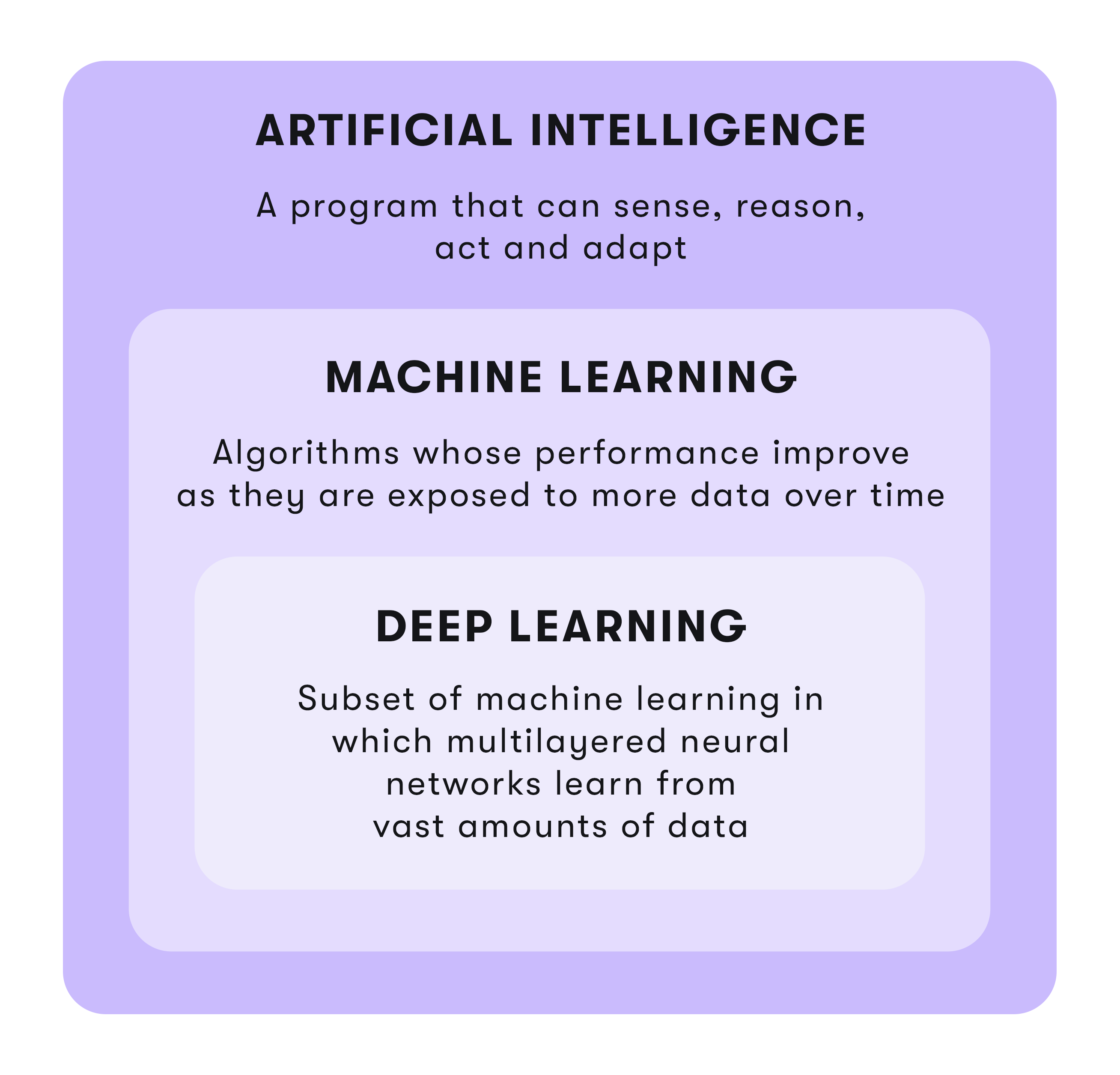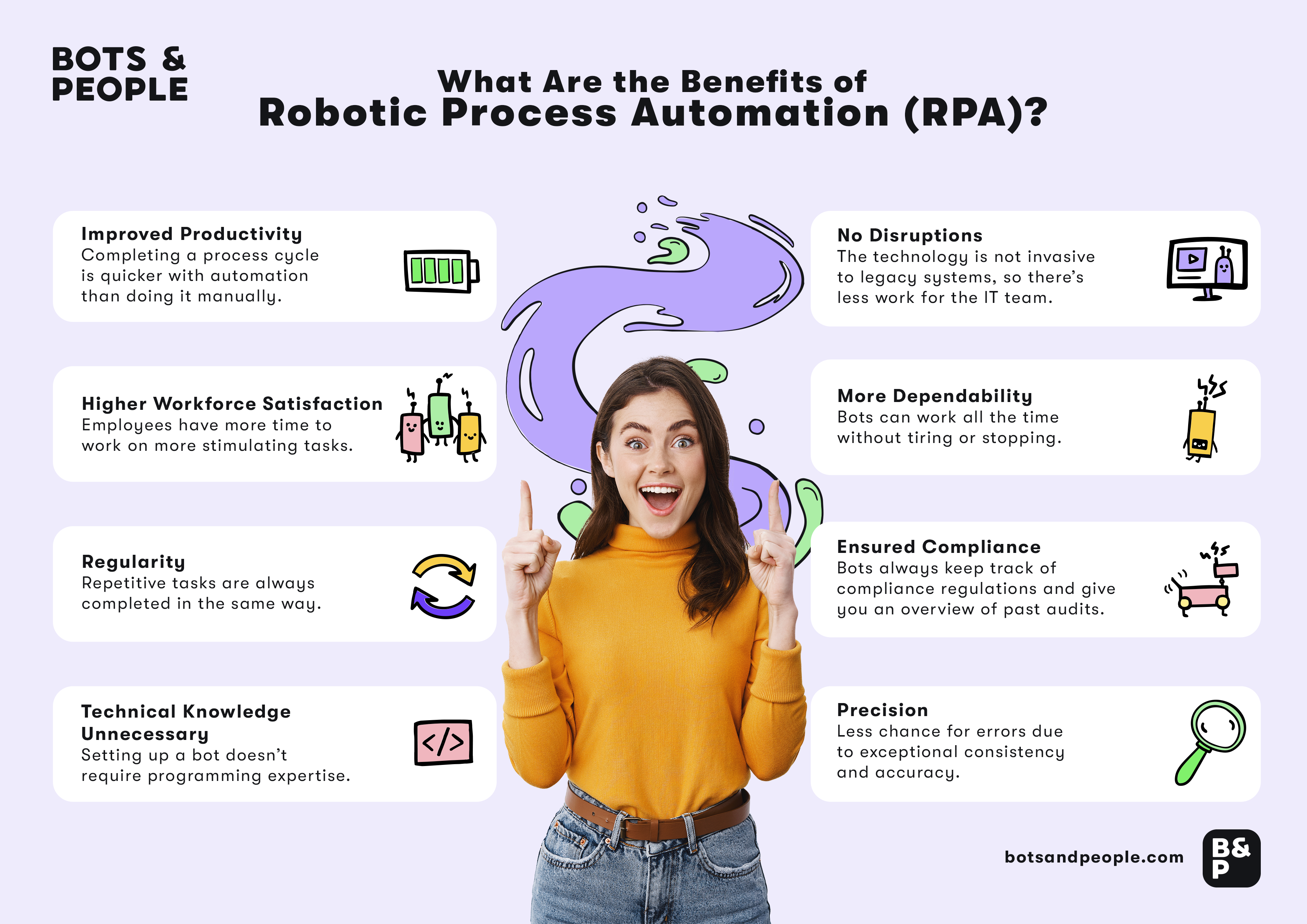More and more companies are turning to process automation to exploit the associated optimization potential. However, as automation increases, so does the need for automation specialists to organize, manage and monitor process automation in the company. This primarily refers to experts in Robotic Process Automation (RPA) as a fundamental automation technology. However, the demand for such automation experts is greater than the currently available supply of specialists with the relevant skills. As a result, salaries for automation experts are significantly higher than those for other IT experts.
Dazzling growth rates
It is undisputed that process automation using Robotic Process Automation (RPA) has a bright future. This is because RPA has proven itself as a technology that enables companies to work in an agile, flexible and efficient manner. Companies can increase the efficiency of their processes and save costs by using their employees more efficiently. According to a market study by Grand View Research, the global market for RPA will grow at a compound annual growth rate (CAGR) of 40.6 percent from 2020 to 2027. The market researchers see the driver of the market growth in the increasing demand for automation of redundant tasks in the business process and in the improvements in the areas of AI and ML.

In addition, process automation is a good solution for solving the problems associated with pandemic-related remote work and reducing the company's costs for additional employees. The noticeable increase in customer-centric thinking among enterprises will provide an additional boost to demand for process automation solutions over the forecast period. Moreover, cloud-based digital process automation services and solutions are increasingly being adopted by enterprises. This, in turn, is likely to provide the market for digital process automation with a further growth spurt.
Jobs without end
It is therefore not surprising that RPA professionals are in demand more than ever. According to estimates, there are currently 5 million jobs waiting for an RPA expert worldwide - and the trend is rising. Opportunities are opening up for automation experts not only in a company's own Automation Center of Excellence or in a specialist department such as HR, Supply Chain, Finance, etc., in order to implement automation solutions internally for the respective specialist departments.
There are also career opportunities as an external expert - either at a consulting firm or as a freelancer - helping companies set up and maintain RPA solutions, or as an RPA developer at an automation vendor such as Automation Anywhere, Celonis or UiPath. It's estimated that about 61 percent of RPA specialists work in-house and 39 percent work at a consulting firm developing automation for clients. With the appropriate automation skills, anyone can pursue their job opportunities in process automation on a full-time or part-time basis.
No industry or subject area restrictions
By implementing RPA, companies can typically save 20 to 30 percent in costs by improving efficiency, reducing errors and improving compliance. It's no wonder, then, that companies across all industries are embracing process automation. As a result, process automation specialists are sought after and urgently needed across industries. Retail, for example, encompasses many processes that are paramount for automation with RPA. In e-commerce, for example, companies can use RPA to manage an ever-changing order and shipping status and update customers when their items have been processed to expected delivery.
Despite recent digital innovations, the banking sector is still known for its lengthy processes around information entry and exchange. This makes banking the ideal area for RPA implementation. Lengthy, multi-step claims processes and document-intensive workflows make the insurance industry a prime use case for RPA.
HR departments are an integral part of all businesses. The larger a company, the larger its HR department and the more processes employees can manage.Tasks like hiring employees and processing employee absences or expense reports are time-consuming, repetitive activities that often still rely on physical documentation. Automating these workflows with RPA frees HR staff from these tasks while improving departmental accuracy and efficiency. These are just a few of the many industries and application areas where process automation makes sense.
RPA dream team with many specialists
Typically, process improvement and automation go hand in hand - requiring an RPA dream team that combines technical knowledge with the ability to identify inefficiencies, streamline workflows, minimize process exceptions, and reduce data silos and bottlenecks. For example, the RPA dream team includes the RPA Developer, RPA Business Analyst, RPA Consultant, RPA Solution Architect, and RPA Infrastructure Engineer.
The list of roles and job descriptions is far from exhaustive. There are many other job titles currently being traded in the RPA industry, and more roles will be created as the technology evolves.

The RPA Developer
The bright prospects of, say, being an RPA developer on this RPA dream team are also supported by UiPath's 2020 RPA Developer Report, which found that 96 percent of RPA professionals are satisfied with their careers and 84 percent of RPA developers believe their work as an RPA expert will positively impact their next career move. As process optimization increasingly unfolds in companies toward full automation, RPA developers will continue to be in high demand. The main responsibility of an RPA developer is to design, develop and implement software robots or bots to work with humans to improve the efficiency of business processes.
To be successful in an RPA developer role, the person should have some basic logical reasoning skills. Basic programming skills also help. The RPA Developer role requires understanding the process that needs to be automated, verifying the feasibility of automating that particular process, and, if appropriate, designing and developing the future state of that process.
Since there are several ways to automate a process, an RPA Developer must be able to find the most effective and efficient way to do so. Although income varies depending on location, experience and professional background, according to Stepstone, the salary of an RPA Developer ranges from €57,168 to €73,872 per year.
The RPA Business Analyst
RPA business analysts, also part of the RPA dream team, draw on extensive knowledge of business operations and processes to demonstrate why redesigning a process will help a company better achieve its goals. They are experts at identifying the parts of a business that can most benefit from RPA and create the process definitions and mappings used to ensure accurate, productive and scalable automations.
RPA business analysts are trained to uncover inefficiencies that RPA can easily correct or identify processes that force employees to unnecessarily re-enter data between systems. They are also tasked with documenting the knowledge and experience associated with the transactions selected for automation. A good analyst can even help create process designs that optimize ROI for businesses. The earning potential ranges from €43,164 to €68,400.
The RPA Consultant
Another member of the RPA dream team is the RPA Consultant. He designs and develops scalable automation solutions. The RPA Consultant is the bridge between the RPA developer and the customer. The RPA Consultant plays an essential role in the RPA Implementation Team and the RPA Center of Excellence. RPA consultants identify potential automation opportunities through their comprehensive process analysis skills. The consultant is the lynchpin between the customer and the RPA development team.
RPA Consultants have excellent communication skills. Typically, RPA Consultants are very conscientious and have logical problem solving skills that assist an RPA Consultant in creating, managing and debugging automation solutions and creating the necessary technical documentation throughout the process. The earning potential ranges from €47,412 to €74,508 per year.
The RPA Solution Architect
In the RPA dream team, the RPA Solution Architect is the pillar of an organization's RPA implementation and must ensure that the solution, when deployed, accomplishes the purpose of automation without glitches. His responsibilities include enabling the development and deployment of the RPA solution and overseeing the initial setup of the infrastructure for the development, test and production environment.
He is responsible for ensuring that all members of the CoE, including stakeholders, agree on the best practices to be followed. Works with the Business Analyst on the feasibility and optimization of the automation project, is responsible for time and cost estimation, and schedules technical meetings to be held during the process.
The RPA Solution Architect monitors the development effort required to develop the component workflows, documents additional requirements after the Process Design Document (PDD) is signed off. A good RPA Solution Architect mentors the developers through constant monitoring and helps troubleshoot the issues. He owns the version control and ensures that logging and reporting is done as per the specified requirements. The earning potential ranges from €34,464 to €51,336 per year.
The RPA Infrastructure Engineer
The RPA Infrastructure Engineer will have a strong understanding of RPA technologies, solutions, underlying IT services and development experience across multiple domains to design scalable architectures and support complex RPA architectures. His responsibilities also include user and resource management of the RPA platform, configuration of enterprise-level resiliency solutions including load balancing and high availability, incident management, development and implementation of enhancements and additional features to the RPA platform, and maintenance and upgrade of the RPA platform. Works closely with IT and other involved teams to ensure service level agreements (SLAs) are met for the RPA platform. The salary ranges from €41,448 to €79,680 per year.
A look into the technological crystal ball
If you take a look at the technological developments of recent years, you don't have to be able to read coffee grounds to predict today that the skills still in demand today will change in the foreseeable future. For example, experts estimate that the market for intelligent process automation will grow by an average of almost 13 percent annually by the end of 2025.
In order to be able to drive and support future-oriented automation, extensive knowledge of business processes and current automation tools coupled with the knowledge of how to apply these in the right IT context is required at the interface between specialist knowledge and automation, in addition to an automation mindset. The hybrid use of different automation technologies, such as Process Mining, cloud automation or Integration Platform as a Service (iPaaS) for the automation of cloud applications, requires different competencies and new role profiles than previously required.
The Automation Strategist
The automation strategist is not only familiar with the company's business processes in general, but also knows and understands the latest relevant automation and process mining technologies and knows how to combine the two in a far-sighted manner. The hybrid use of different automation technologies, such as cloud automation, is just as familiar to him as the use of process mining tools.
He is a well-connected generalist and visionary who, with creativity and strong communication skills, is able to successfully orchestrate the necessary change management in the respective department. He wears the hat for all automation projects of the business department and closes the gap between the business department and a Center of Excellence as the executing organization of automation within the company.
The Automation Change Manager
The Automation Change Manager takes the change initiatives from the CoE to the business departments, shares success stories and helps the business departments with the transformation. In addition to a basic understanding of automation technology and business processes, a great deal of empathy and communication skills are required here.
The Automation Architect
The Automation Architect designs the necessary IT infrastructure for the automation projects and keeps an eye on the costs for tools and technologies. This requires a deep understanding of the entire spectrum of IT Operations to ensure the availability, efficiency and performance of the IT infrastructure processes and services. In addition, this role requires strong problem solving skills, especially when directly addressing user issues with software, hardware and servers.
The Automation Developer
The Automation Developer is an extensively trained RPA developer with a full technical understanding of automation, ranging from RPA development - building software bots - to cloud automation and API development (interface programming). A team of developers then implements the submitted processes centrally.
Advanced training as a career stirrup
Anyone thinking of seeking their opportunity in process automation does not necessarily already need to have basic technical skills to improve their career prospects. Attracted by the enormous growth potential of process automation and the surge in demand for suitable automation professionals, RPA training providers have mushroomed. All have stepped up to meet the demand for these skills and train those who want to adapt their knowledge to this evolving market. However, the training on offer is as varied as the number of providers, but does not always deliver what it promises in terms of quality. It is worth taking a closer look at what the training on offer looks like.
Qualification certificate recommended
Most companies expect candidates for RPA positions to have at least minimal training, but better yet, a recognized certification. Training on one or more leading RPA platforms is therefore a good place to start. (For an overview of training opportunities from leading RPA providers, click here). However, the often very focused, monolithic, one-dimensional understanding of training with a strong product focus will no longer be sufficient in the future.
Content and method must be right
To keep up with the fast pace of innovation in automation technologies, those seeking training should look for training programs that combine the latest learning technologies and methods with a holistic technological perspective to build the skills needed to automate processes. On the one hand, an effective training plan builds on the latest scientific learning methods; on the other hand, it also takes into account strategies that combine high motivation to learn, the sustainable transfer of knowledge and the use of cutting-edge technologies.
Automation Academies offer efficient 360-degree training with a lot of content and practical relevance using new tools and methods that go beyond classic webinar and online training forms, and take into account the hybrid use of different automation technologies.
Conclusion
Those with the appropriate skills to evaluate, analyze and optimize any business process that needs to be automated are among the candidates in high demand around the world. LinkedIn predicts a 40 percent annual growth rate in job postings for RPA experts in its 2020 Emerging Jobs Report. The evolution of basic automation technology by combining it with artificial intelligence and machine learning will change the scope of future automation jobs.
In general, innovations in process automation will create many more job opportunities worldwide in the future, and thus a large number of career opportunities for job seekers. Since it is an emerging technology, now is the right time to start a career in RPA with proper training. After all, a job in the process automation environment is now extremely lucrative and promises a 30 percent higher salary compared to a general programmer or software engineer.









